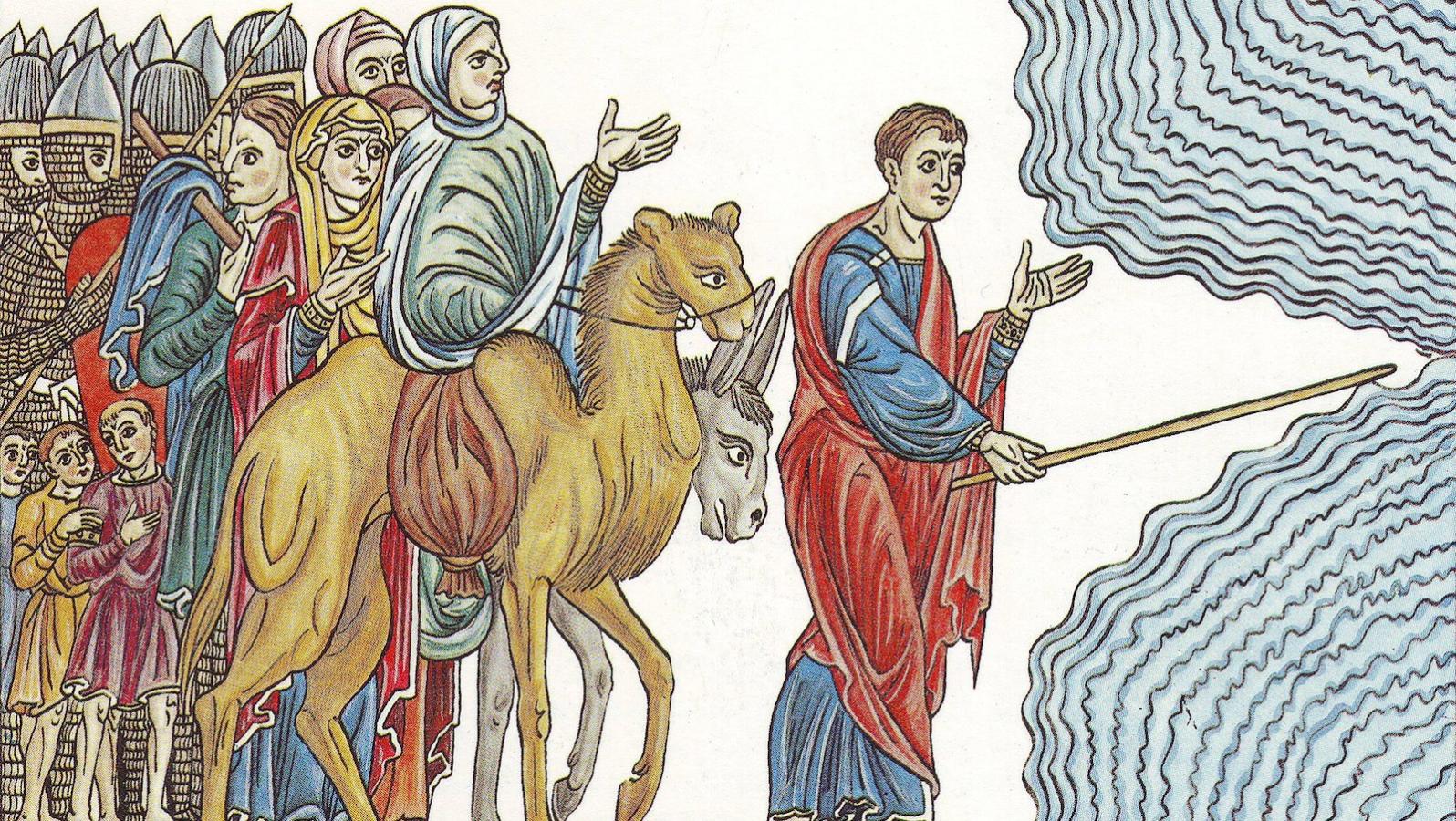Commentary on Parashat Beshalach, Exodus 13:17 - 17:16
Surely, this Torah reading contains some of the most dramatic and best-known scenes in all of written literature. The liberation of the Israelite slaves by God, the pursuit of the fleeing Hebrews by Pharaoh and his army, the splitting of the Red Sea, with Israel crossing safely beyond and Pharaoh’s forces drowning in the waters — these scenes indelibly shaped the consciousness of the Jewish people throughout our tumultuous history. We are who we are precisely because we recall our origins as a slave people, because so much of Jewish practice is designed to remind us that we owe our freedom to a God of love and justice.
Cornerstone of Jewish Existence?
The story of the liberation from Egypt is the cornerstone of Jewish existence. Or is it? Read the Torah portion again, and you will find that what is most striking is not the miracles — wondrous as they may be. What is particularly noteworthy is how quickly the Israelite slaves forget about their extraordinary redemption.
Barely did they cross to freedom, when the people complained to Moses and to God. They complained about a lack of water, they complained about a lack of food, and they complained simply about no longer being surrounded by familiar–if hostile–Egypt.
In the words of Midrash Shemot Rabbah, “Have you forgotten all the miracles which God performed for you?” Miracles seem to be an ineffective way of inculcating a consciousness of God. In fact, the entire Bible can be read as a book about the consistent inability of God to teach the Jews to be grateful.
First, God tries an idyllic garden. That doesn’t work; Adam and Eve disobey anyway. Then God sends a flood. That fails also; people continue to act violently. God then enslaves the Jews, sends a liberator, and redeems them from Egypt. After ten miraculous plagues and a split sea, the Jews still act truculently.
God gives a Torah of instructions–the Jews ignore it. God sends prophets of insight–the Jews rebel against them. The Bible seems to indicate that miracles don’t work. People marvel at them while they are in process, and then forget about them the moment they finish.
More Than Special Effects
To reform human character takes much more than “special effects,” no matter how Divine their origin. To transform human behavior requires not grandiose drama, but rather constant and gradual education, reinforcement, discipline and community.
The shift from biblical to rabbinic Judaism reflects the growing, divine insight that the way to mold a sacred people lies not in external miracles, but in inner transformation. That transformation is accomplished through small, prosaic progress. By gradually incorporating mitzvot (commandments) into our lives–by moving a step at a time toward making Shabbat and tzedakah [charity], kashrut [observance of Jewish dietary restrictions] and social justice, prayer and study a regular part of our being–we can, with time, remake ourselves in the Divine image.
Such a transformation is much more difficult than merely splitting a sea. It involves a tenacity and an openness that must be cultivated continually. But the reward of such a transformation is precisely what God sought more than three thousand years ago at the shores of the Red Sea — a Jewish community that puts God at the center through the study, practice, and development of our sacred heritage.
Provided by the Ziegler School of Rabbinic Studies, which ordains Conservative rabbis at the American Jewish University.
Torah
Pronunced: TORE-uh, Origin: Hebrew, the Five Books of Moses.
kashrut
Pronounced: kahsh-ROOT, Origin: Hebrew, the Jewish dietary laws.
Midrash
Pronounced: MIDD-rash, Origin: Hebrew, the process of interpretation by which the rabbis filled in “gaps” found in the Torah.



